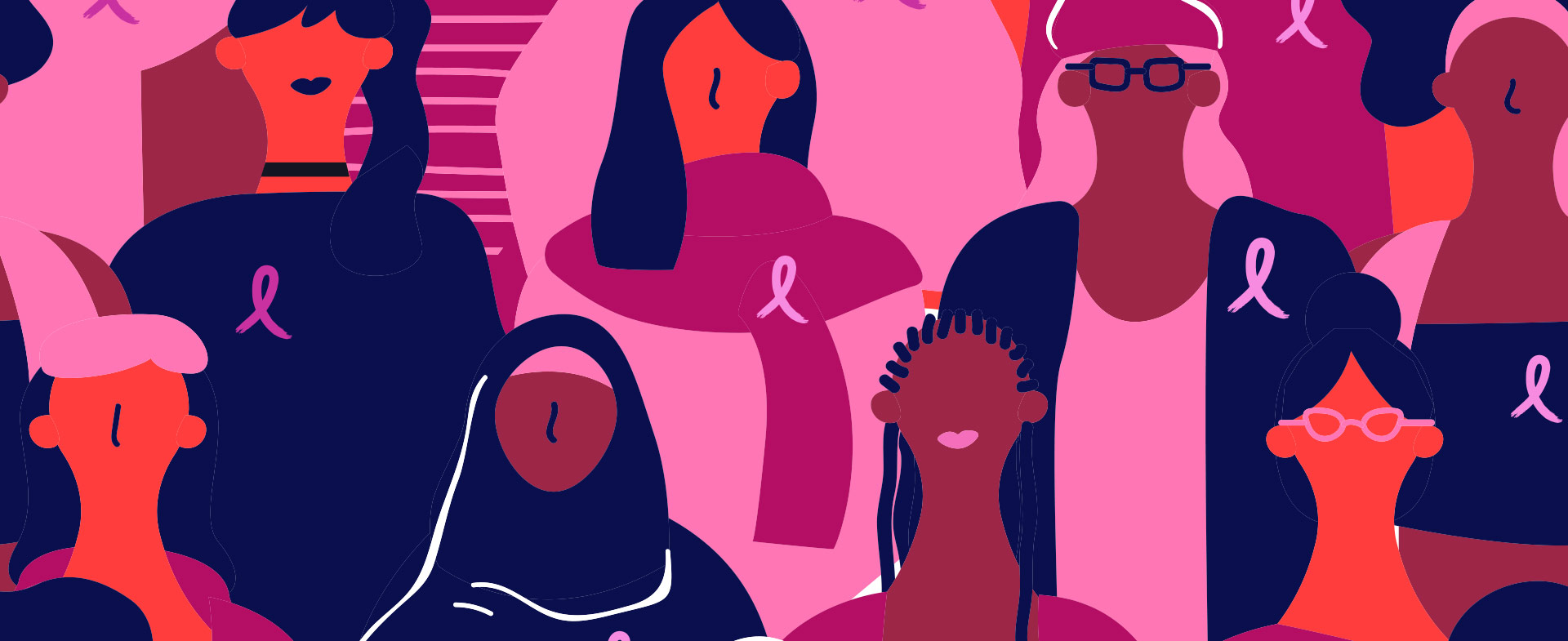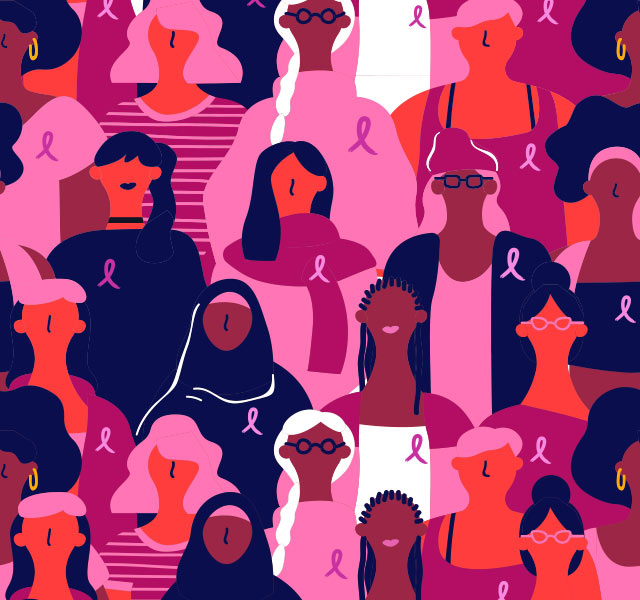A variety of genetic and environmental factors come into play when measuring someone’s breast cancer risk, but estrogen (the dominant female hormone) is one risk factor that every woman has.
“Some breast cancers are fed by estrogen, so having more estrogen leads to a higher risk for breast cancer,” says Jessica Bensenhaver, M.D., a breast cancer surgeon with Henry Ford Health. “Increased estrogen exposure for long periods of time can increase your risk.”
Certain circumstances can increase or lower estrogen levels in the body. While we all need estrogen, it’s elevated levels that you need to watch out for.
Factors That Can Influence Estrogen Levels
- Obesity. “If you’re overweight, you are at an increased risk for breast cancer because peripheral fat promotes estrogen production, leading to excess estrogen circulating throughout the body,” says Dr. Bensenhaver. “Anything outside of a normal BMI (body mass index) can lead to increased estrogen.”
- Pregnancy/Breastfeeding. The relationship between pregnancy and estrogen is complex, however, the long-term benefit of a full-term pregnancy is that it is risk reductive. But there’s a catch: Pregnancy is only risk reductive before the age of 30. Breastfeeding, which lowers estrogen levels, reduces your risk at any age. The longer you breastfeed, the more benefit you see.
- Early or late menstruation. Getting your period early in life (before 11 years old) or not going through menopause until later in life (after 55 years old) can also increase your risk for breast cancer, as both of these factors lead to increased estrogen exposure, says Dr. Bensenhaver.
- Hormone replacement therapy. Hormone replacement therapy has been used to alleviate side effects of menopause, but Dr. Bensenhaver advises against it. “Hormone replacement therapy—which adds higher levels of estrogen into the body—has been proven to significantly increase your breast cancer risk. I do not recommend it in a post-menopausal setting,” she says.
What You Can Do About It
While some of the above factors are not within our control, there are lifestyle changes you can make to reduce your risk of breast cancer.
- Lose weight. The sooner you lose weight, the sooner you will lose that peripheral production of excess estrogen and the excess estrogen exposure.
- Limit alcohol consumption. Consuming one alcoholic drink per day increases your breast cancer risk by at least five percent, according to the American Cancer Institute for Cancer Research. Two to three drinks per day raises your risk by 20%. The less you drink, the better for your health.
- Exercise. Although it’s no cancer cure, regular exercise is linked to reduced cancer risk. The American Cancer Society recommends that adults engage in at least 150 minutes of moderate activity or 75 minutes of vigorous activity every week, ideally spread throughout the week.
- Don’t use hormone replacement therapy for menopause. “I usually recommend following up with your gynecologist to see if there are natural ways that can help alleviate symptoms of menopause,” says Dr. Bensenhaver.
- Get annual mammograms. Regardless of your risk factors, getting a mammogram annually is crucial, and you should feel comfortable talking to your doctor about changes in your health. “If you feel or see something, don’t wait for your screening," says Dr. Bensenhaver. "Contact your provider right away. An earlier diagnosis allows for more treatment options and a better prognosis.”
To make an appointment with a cancer specialist, visit henryford.com/cancer or call (888) 777-4167.
Dr. Jessica Bensenhaver leads Henry Ford Cancer’s Breast Cancer Program and is a surgical oncologist seeing patients at Henry Ford Hospital in Detroit, Henry Ford Wyandotte Hospital and Henry Ford West Bloomfield Hospital.



